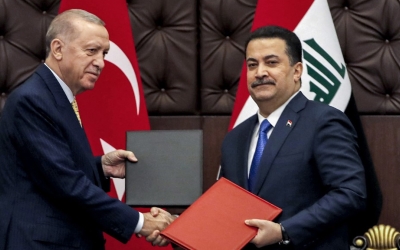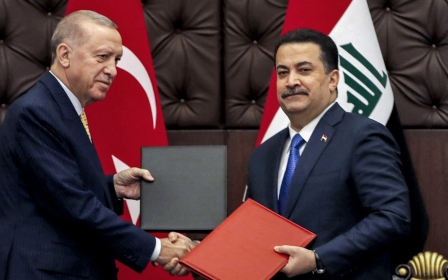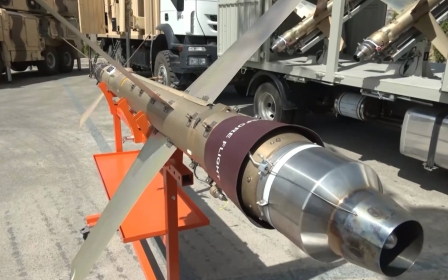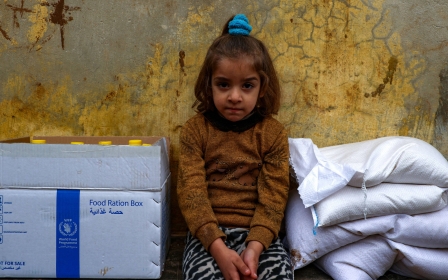Under Turkey's watch, tensions simmer in northern Syria
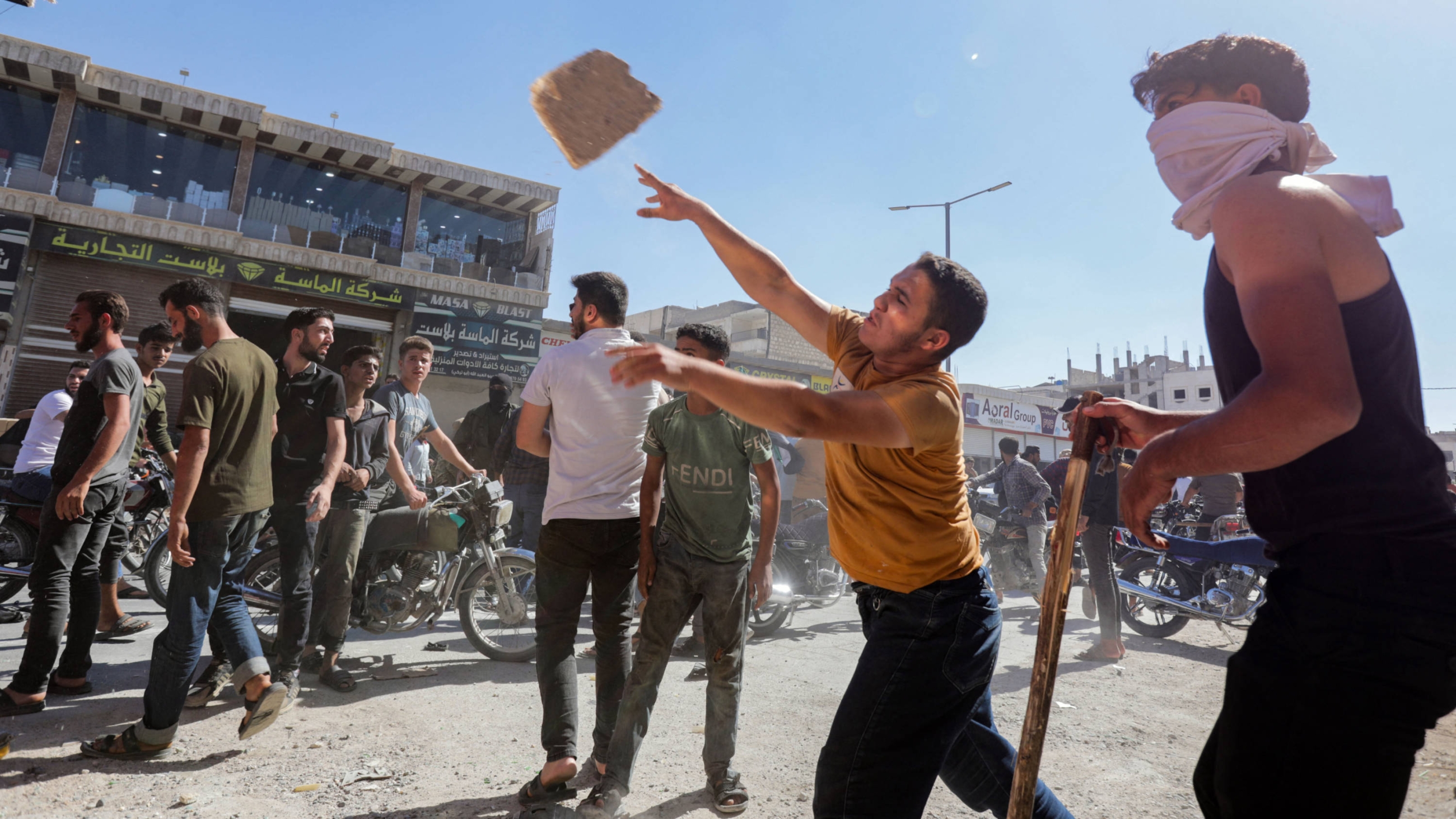
When Syrian President Bashar al-Assad announced last Wednesday that he was open to holding talks with Turkey, the statement quickly went viral on social media.
Assad signalled a change within the Syrian government, which, since 2022, has imposed maximalist preconditions on launching talks with Ankara, such as complete withdrawal of Turkish forces from northern Syria.
The Turkish government rejected the conditions back then, saying that everything could be discussed during negotiations, but no to concessions beforehand. This time, however, Assad didn’t come up with any preconditions.
“Syria is open to all initiatives regarding Syrian-Turkish relations as long as they are based on respect for the sovereignty of the Syrian state over all its territory and the fight against all forms of terrorism and its organisations,” Assad told Russian president’s special envoy Alexander Lavrentiev during a meeting.
Such a statement didn’t come out of a vacuum. Iraqi mediation efforts, led by Prime Minister Mohammed Shia Sudani, to convince the Syrian government to engage with Turkey have made significant progress, according to sources familiar with the issue, speaking to Middle East Eye.
New MEE newsletter: Jerusalem Dispatch
Sign up to get the latest insights and analysis on Israel-Palestine, alongside Turkey Unpacked and other MEE newsletters
“We are trying to create such a basis for reconciliation and dialogue between Syria and Turkey,” Abadi told Turkish media in June, adding that he had already held talks with President Recep Tayyip Erdogan and Assad on the issue.
“Negotiations on this issue continue and hopefully there will be some steps in this context soon.”
After years of failed efforts by Russia to mediate between the two neighbours, the Iraqi efforts have also brought Iran on board as well.
Angering Syrians
A senior Iranian official told his counterparts in Ankara last month that they too were pressuring Damascus to lift its preconditions for a dialogue with the Turkish government, according to a person close to the discussions. The source suggested that the Iranians had not wanted to be sidelined while Iraqi efforts were making headway.
And then came Erdogan’s statements welcoming Assad, the man he once called “butcher” and “dictator” over the massacre of civilians in the country under his watch.
“There is no reason not to establish ties with Syria. We may act together the same way we did in the past,” he said on Friday.
“And we have no interest in interfering in Syria's internal affairs. We may even sit and talk to each other [with Assad] even to the point of coming together with families.”
Turkey, which hosts around four million refugees, including 3.6 million Syrians, has seen increasing tensions as economic difficulties mount.
Ankara believes the time has come to launch talks with Damascus to facilitate the eventual return of refugees and establish an alliance against Kurdish armed groups in eastern Syria. But Turkish officials are aware that these efforts will take an extensive amount of time to succeed and it will not be easy.
Omer Ozkizilcik, an expert on Syrian affairs at the Atlantic Council think tank said that Erdogan’s statements deeply disappointed and angered the Syrians living in northern Syria.
That same day, Turkey reopened Abu al-Zandin crossing near al-Bab, commercially connecting Turkish-controlled areas to territories held by the Syrian government in the eastern countryside of Aleppo.
The Syrian Observatory of Human Rights (SOHR) claimed the next day that preparations were underway to widen the Hajez al-Shatt highway in Turkish-held Azaz, which connects Aleppo to Turkish border town Gaziantep through Bab al-Salama crossing.
Then on Sunday, Syrian protesters stormed the Abu al-Zandin crossing, destroying some equipment and calling on local authorities to stop the move.
'Selling us to Assad'
While tensions were on the rise in northern Syria due to these developments, violence erupted in the Turkish Anatolian heartland city of Kayseri on Sunday, after reports emerged that a Syrian national allegedly sexually harassed an underage girl.
Hundreds of locals in the low-income neighbourhood of the city destroyed vehicles and stores belonging to Syrians, and set buildings ablaze.
Local observers called the act “an attempted pogrom” as authorities detained 67 suspects, half of whom were blamed by the authorities for having a criminal record in the past. But the footage of attacks on Syrians was cheered by many on social media, further scaring Syrians in northern Syria.
The following afternoon, unprecedented protests took place in multiple cities in northern Syria, with demonstrators attacking cars and trucks with Turkish plates, damaging and burning some of them. Footage also showed Turkish armoured vehicles and some Turkish outposts were hit with bullets in Afrin and Azaz.
In one video, Syrians are heard saying to Turkish soldiers protecting an outpost: “You're selling us to Bashar Assad. Do you want us to sell you to the PKK?”, referring to the Kurdish armed group that Turkey deems a terrorist group.
Turkey has, since 2016, allied itself with Syrian rebel groups against PKK offshoots in Syria during multiple operations.
“A coordinated series of provocative actions occurred in multiple locations around midday, heavily supported through Telegram channels, some linked to the Syrian National Army (SNA),” Levent Kemal, a regional expert and journalist, said in an article. “The attacks targeted Turkish institutions and military points, rapidly disseminating videos with anti-Turkish slogans.”
Kemal added that within an hour, assaults on Turkish commercial trucks, Turkish post offices, hospitals, and bases ensued, with specific calls to escalate actions towards Turkish bases in Idlib. Armed and masked individuals appeared at key protest sites, suggesting premeditation.
“The events, far from coincidental, reveal a deeper, orchestrated effort behind the scenes,” Kemal said. The journalist added that only a small number of people out of 90,000-strong Syrian rebels joined the protests. Reports said four civilians died in Afrin during the chaos.
Anti-Syrian demonstrations
Suhail al-Ghazi, an expert on Syria, says the connection between local Syrians and those living in the diaspora or as refugees is still stronger than many believe.
“Citizens all over Syria still see protests as an ultimate means; Sweida, Deraa, Idlib, northeast and northern Syria,” he said. “The protests indicate Turkey’s failure to understand dissatisfaction with local interim government and Turkish governing bodies.”
He added that the Syrian opposition also failed to produce a free, elected and functional political sphere, instead of the same local faces that do not mean much for the population at large.
'The protests indicate Turkey’s failure to understand local dissatisfaction'
- Suhail al-Ghazi, Syria expert
The attacks on Turkish flags also triggered a new wave of demonstrations against the Syrians in Turkey on Monday night, spreading from Kayseri to Adana, Gaziantep and other cities.
Turkish Interior Minister Ali Yerlikaya said 474 suspects were arrested overnight during these nationwide protests, 285 of whom had past criminal records from robbery to sexual harassment.
Turkish sources familiar with Ankara’s thinking said Turkey doesn’t have any plans to withdraw from northern Syria any time soon.
They added that Turkey is committed to the UN Security Council resolutions that mandate nations for a voluntary, safe and honourable return of refugees to Syria, a position reiterated by Turkish Defence Minister Yasar Guler in June.
Guler suggested that Turkey would want to see free and fair elections and a new constitution in Syria mandated by the Security Council.
“Turkey's efforts and principled stance for the well-being of the Syrian people are above any provocation,” said the Turkish foreign ministry in a statement on Monday night.
Middle East Eye delivers independent and unrivalled coverage and analysis of the Middle East, North Africa and beyond. To learn more about republishing this content and the associated fees, please fill out this form. More about MEE can be found here.


